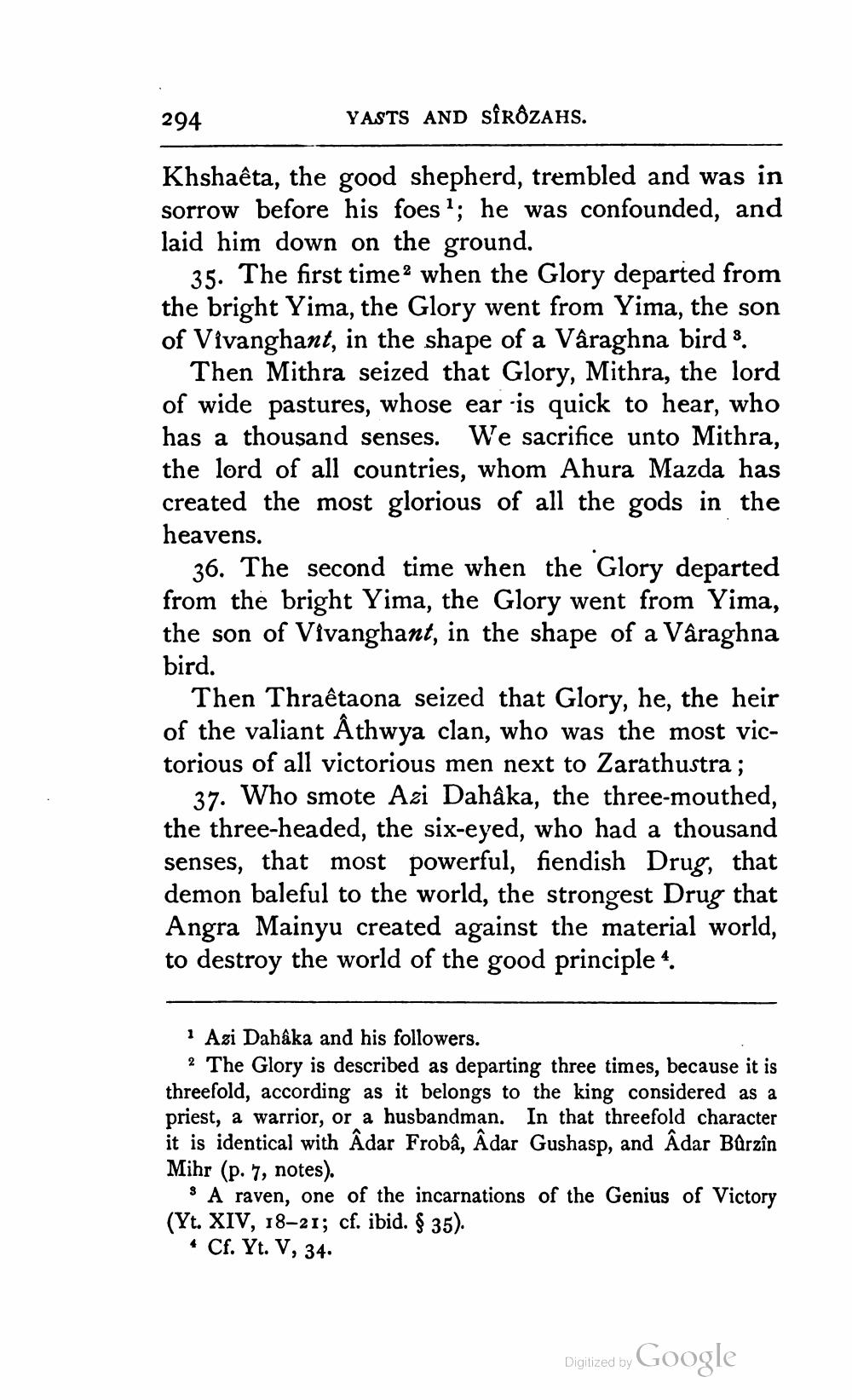________________
294
YASTS AND SÎRÔZAHS.
Khshaêta, the good shepherd, trembled and was in sorrow before his foes ; he was confounded, and laid him down on the ground.
35. The first time when the Glory departed from the bright Yima, the Glory went from Yima, the son of Vivanghant, in the shape of a Vâraghna bird s.
Then Mithra seized that Glory, Mithra, the lord of wide pastures, whose ear is quick to hear, who has a thousand senses. We sacrifice unto Mithra, the lord of all countries, whom Ahura Mazda has created the most glorious of all the gods in the heavens.
36. The second time when the Glory departed from the bright Yima, the Glory went from Yima, the son of Vivanghant, in the shape of a Vâraghna bird.
Then Thraêtaona seized that Glory, he, the heir of the valiant Athwya clan, who was the most victorious of all victorious men next to Zarathustra ;
37. Who smote Azi Dahâka, the three-mouthed, the three-headed, the six-eyed, who had a thousand senses, that most powerful, fiendish Drug, that demon baleful to the world, the strongest Drug that Angra Mainyu created against the material world, to destroy the world of the good principle 4.
1 Azi Dahaka and his followers.
2 The Glory is described as departing three times, because it is threefold, according as it belongs to the king considered as a priest, a warrior, or a husbandman. In that threefold character it is identical with Âdar Frobâ, Âdar Gushasp, and Âdar Bärzîn Mihr (p. 7, notes).
S A raven, one of the incarnations of the Genius of Victory (Yt. XIV, 18-21; cf. ibid. § 35).
• Cf. Yt. V, 34.
Digitized by Google




